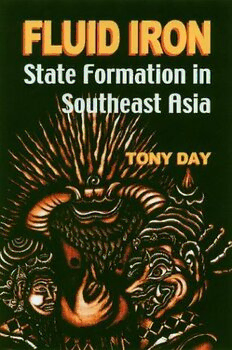
Fluid Iron: State Formation in Southeast Asia PDF
353 Pages·2002·1.701 MB·English
Most books are stored in the elastic cloud where traffic is expensive. For this reason, we have a limit on daily download.
Preview Fluid Iron: State Formation in Southeast Asia
Description:
Fluid Iron is the first extended treatment of state formation in Southeast Asia from early to contemporary times and the first book-length analysis of Western historical and ethnographic writing on the region. It includes critical assessments of the work of Clifford Geertz, O. W. Wolters, Benedict Anderson, and other major scholars who have written on early, colonial, and modern Southeast Asian history and culture. Making use of the ideas of Weber, Marx, Foucault, and postmodern and postcolonial theory, Tony Day argues that culture must be restored to the study of Southeast Asian history so that the state and historical developments in the region can be returned to their own "alternative" historical contexts and trajectories. He employs a wide range of contemporary scholarship, as well as Southeast Asian literary and historical texts, inscriptions, and temples to explore the kinds of concepts and practices -- kinship networks, cosmologies, gender identities, bureaucracies, rituals, violence and aesthetics -- that have been used for centuries to build states. Highly readable and accessibly written, Fluid Iron demonstrates that Southeast Asian state building has taken place in a part of the world that has always been a crossroads of cultural and transcultural change. He urges Southeast Asians to learn more about the history of their own state formations so they can safeguard not only human freedom, but also the "incongruity" of their unique region in the years ahead.
See more
The list of books you might like
Most books are stored in the elastic cloud where traffic is expensive. For this reason, we have a limit on daily download.
